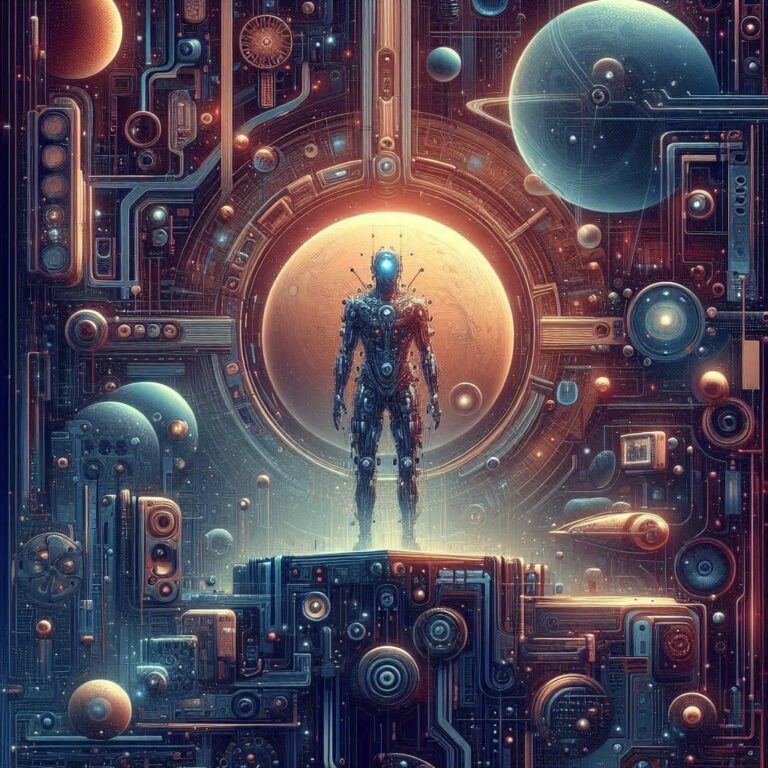
The science fiction genre plunges into the vast unknown, exploring the wonders and dangers of future technologies, alien life, and alternate realities. It challenges our understanding of the universe, blending speculative ideas with thought-provoking concepts that push the boundaries of what’s possible. These stories spark the imagination, taking us on journeys to distant galaxies, parallel dimensions, and technological revolutions that could shape our future.
At its core, the science fiction genre explores:
The clash between humanity’s progress and the unknown, where exploration and innovation come with unintended consequences. From dystopian societies to utopian dreams, this genre captivates by imagining both the potential and the peril of the future, leaving readers to ponder the unknown long after the story ends.
Writing a science fiction story means crafting a narrative that stretches the limits of imagination, blending futuristic technologies, alien civilizations, and alternate realities into a thought-provoking adventure. From world-building to exploring deep philosophical questions, each element of the story should challenge what is known and explore what could be. Here’s a step-by-step guide to creating an unforgettable sci-fi journey:
Science fiction novels have sparked imagination and expanded the possibilities of what the future holds. From space exploration to artificial intelligence, these groundbreaking books have shaped the genre and influenced generations of writers and readers alike. Here are five iconic science fiction books that defined the genre:
Dune by Frank Herbert
Did you know? Dune is considered one of the best-selling science fiction novels of all time and was inspired by Herbert’s interest in ecology, politics, and religion. Its complex world-building and intricate political intrigue set the standard for epic sci-fi storytelling.
1984 by George Orwell
Did you know? Orwell’s 1984 introduced the concept of “Big Brother” and has influenced countless works of dystopian fiction. Its exploration of totalitarianism, surveillance, and the power of language remains eerily relevant today.
Neuromancer by William Gibson
Did you know? Neuromancer helped establish the cyberpunk sub-genre, with its portrayal of artificial intelligence and virtual reality. Gibson’s vision of cyberspace predates the internet age, making the book a prescient work of speculative fiction.
The Left Hand of Darkness by Ursula K. Le Guin
Did you know? Le Guin’s The Left Hand of Darkness explores themes of gender and society, set on a planet where inhabitants can change sex. Its bold exploration of gender fluidity challenged traditional norms and became a milestone in science fiction.
The War of the Worlds by H.G. Wells
Did you know? The War of the Worlds was one of the first novels to depict an alien invasion and is credited with influencing much of modern science fiction. The book’s mix of adventure, alien life, and social commentary made it an early classic in the genre.
This sub-genre blends high-tech futures with gritty, dystopian realities, often exploring the impact of technology on society. It delves into themes of corporate control, hacking, artificial intelligence, and urban decay, creating a vision of the future that is both advanced and morally ambiguous.
Example: Neuromancer by William Gibson.
Space opera features grand, action-packed adventures set in outer space, often involving intergalactic battles, complex political intrigue, and larger-than-life heroes. These stories focus on vast cosmic settings and epic conflicts, blending science fiction with dramatic, almost operatic storytelling.
Example: Dune by Frank Herbert.
Dystopian fiction explores societies where conditions have drastically deteriorated, often due to authoritarian regimes, environmental collapse, or technological misuse. These stories examine the consequences of a broken world, focusing on the struggle of individuals or groups to survive or rebel against oppressive systems.
Example: 1984 by George Orwell.
Hard sci-fi emphasizes scientific accuracy and technical detail, often based on real-world science and theories. It focuses on the exploration of space, physics, and technology, using plausible science to create believable worlds and scenarios.
Example: The Martian by Andy Weir.
Alternate history reimagines key events in history with a speculative twist, creating worlds where major historical moments unfolded differently. It explores how small changes in the past can lead to drastically different futures, often blending real events with imaginative scenarios.
Example: The Man in the High Castle by Philip K. Dick.
Ready to share your story?
Tell us what you need—we’ll help bring your book to life.
